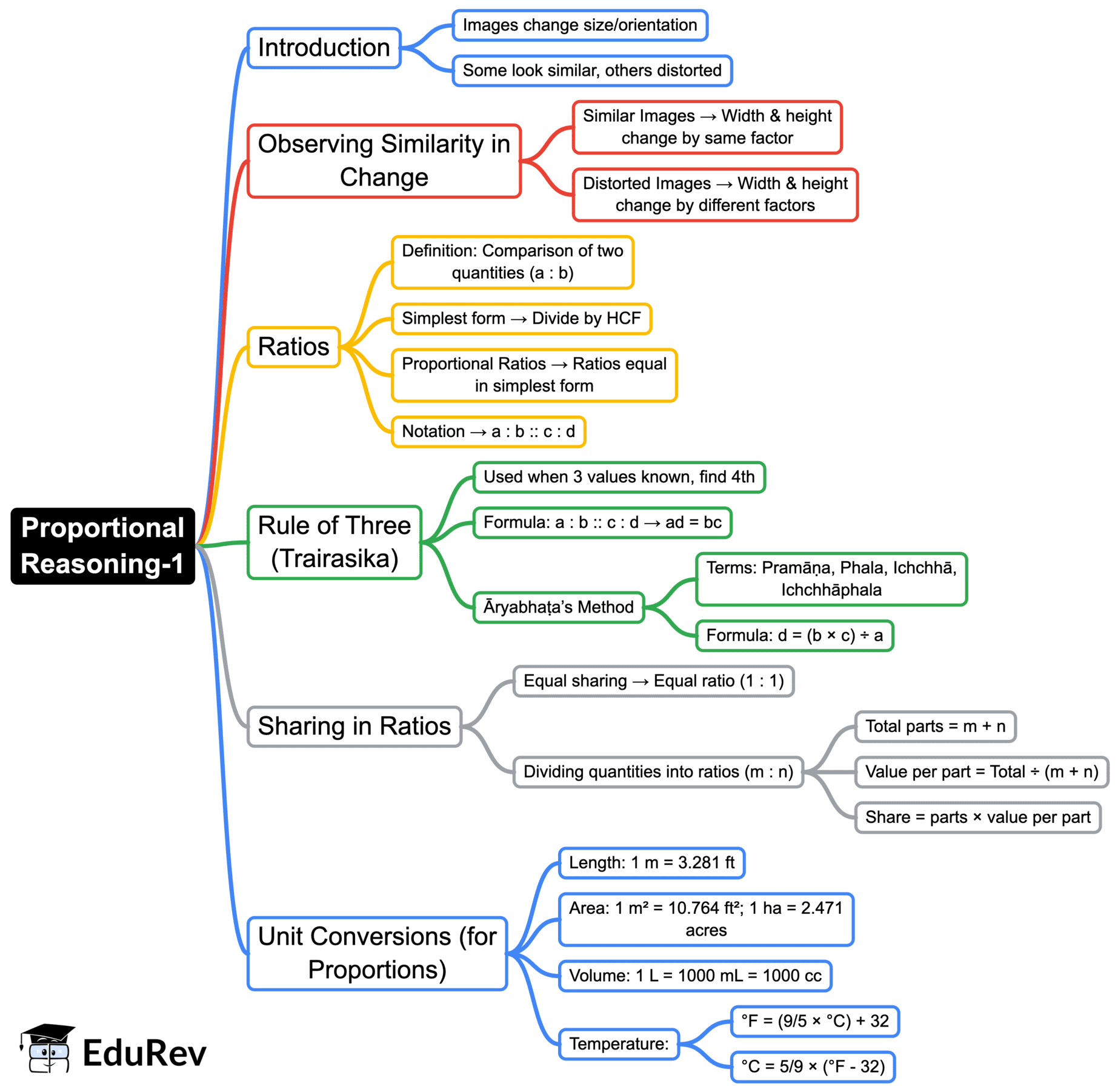Class 8 Exam > Class 8 Notes > Mathematics Class 8- New NCERT (Ganita Prakash) > Mind Map: Proportional Reasoning-1
Mind Map: Proportional Reasoning-1 | Mathematics Class 8- New NCERT (Ganita Prakash) PDF Download

The document Mind Map: Proportional Reasoning-1 | Mathematics Class 8- New NCERT (Ganita Prakash) is a part of the Class 8 Course Mathematics Class 8- New NCERT (Ganita Prakash).
All you need of Class 8 at this link: Class 8
|
13 videos|105 docs
|
FAQs on Mind Map: Proportional Reasoning-1 - Mathematics Class 8- New NCERT (Ganita Prakash)
| 1. What is proportional reasoning and why is it important in mathematics? |  |
Ans. Proportional reasoning is the ability to compare ratios and understand the relationship between quantities. It is important in mathematics because it helps students solve problems related to ratios, rates, and percentages, which are foundational concepts used in real-life situations such as cooking, budgeting, and scaling models.
| 2. How can I identify if two quantities are proportional? |  |
Ans. Two quantities are proportional if they have a constant ratio. To identify this, you can divide one quantity by the other. If the result is the same for all pairs of values, then the quantities are proportional. For example, if you have two sets of values (a₁, b₁) and (a₂, b₂), check if a₁/b₁ = a₂/b₂.
| 3. Can you give an example of proportional reasoning in a real-life scenario? |  |
Ans. A common example of proportional reasoning in real life is cooking. If a recipe calls for 2 cups of flour for 4 servings, and you want to make 8 servings, you can use proportional reasoning to determine the required amount of flour. Since 8 is double 4, you would need 4 cups of flour (2 cups × 2).
| 4. What are some common mistakes students make when dealing with proportional reasoning? |  |
Ans. Common mistakes include confusing addition with multiplication, failing to simplify ratios, and incorrectly assuming that two ratios are proportional without verifying their constant relationship. Students may also misinterpret word problems, leading to incorrect setups and solutions.
| 5. How can I practice and improve my proportional reasoning skills? |  |
Ans. To improve proportional reasoning skills, students can practice with real-life problems, use online resources or worksheets focused on ratios and proportions, and engage in activities like cooking or shopping that require calculating proportions. Additionally, working through examples and explaining the reasoning behind solutions can reinforce understanding.
Related Searches















